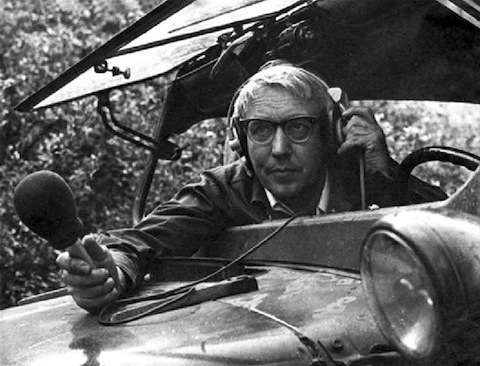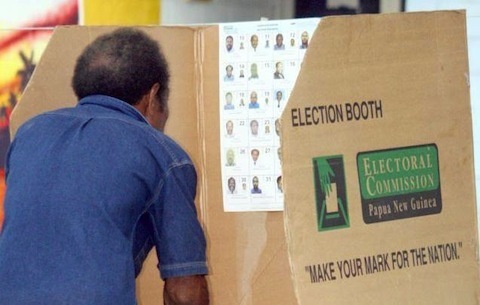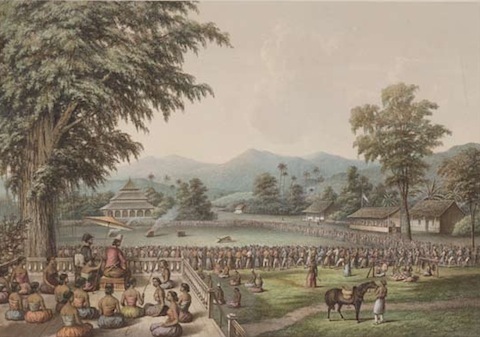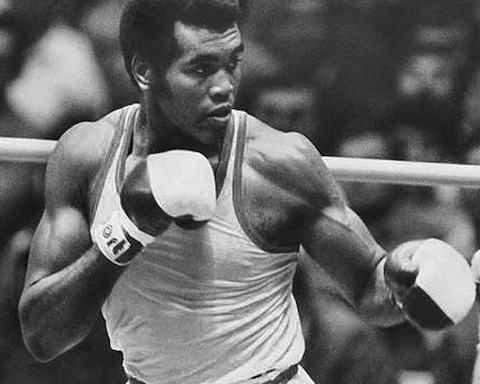Brendan I. Koerner's Blog, page 19
June 29, 2012
The Birdman of Puschino-on-Oka

A quick backgrounder on a man whose intense dedication to an arcane pursuit I truly admire, though I can by no means claim to understand it:
A cryogenics and nerve cells specialist, Russian biophysicist Boris Nikolayevich Veprintsev (1928-1990) started recording Soviet birds on homemade equipment in 1957 while studying at Moscow University, undertaking annual birding expeditions throughout the country, a habit he kept almost until his death. Veprintsev collected thousand recordings documenting the Soviet avifauna as well as mammals, fishes, amphibians and insects of the East European Plain region, including rare and now extinct species. His first LP, Morning in the Forest, was published in 1960, with the approval of Khrushchev himself, though Veprintsev’s family had been harassed by the Soviet regime, and Boris’ father sent to the gulag in the 1940s. Veprintsev subsequently published as many as 28 LPs, amounting to over 500 bird voices. He founded the Soviet Archive of Wildlife Sounds of the USSR Academy of Sciences in 1973, located in Puschino-on-Oka, 120 km south of Moscow, where Veprintsev worked as head of the Academy’s Laboratory of Biophysics of nerve cells from 1966.
Much more here, though you’ll probably have to use Google’s handy translate function.
(Image via Continuo)
June 27, 2012
Hubris, Thy Name is Vanna
There was a time when Vanna White aspired to be more than just another game-show letter turner. Like all television personalities, she longed to cross over into the world of film, so that someday her name would be mentioned in the same breath as Hollywood’s great. Unfortunately for White, her acting chops leave something to be desired, as evidenced by 1988′s Goddess of Love (above). I’d like the think the project flopped in part as karmic retribution for White’s obvious arrogance, which comes across vividly in this 1987 profile:
She sums up her current status by licking a finger, then applying it to one of her tan-and-shapely legs while making a hissing sound to indicate sizzling heat.
The Mario Balotelli of game-show hostesses, for sure.
June 25, 2012
Going to the Mattresses
By the time you read these words, I’m gonna be in on an island off the coast of Maine, hunkering down to revamp the book and spend some last moments with the royal trio before it becomes a quartet. Just a sporadic few things this week—back to solid land on July 2nd.
June 22, 2012
The Value of a Vote

This weekend’s national election in Papua New Guinea is a real grudge match between bitter enemies: Sir Michael Somare, the dominant figure in the nation’s politics since independence, and Peter O’Neill, the man who replaced him as prime minister under dubious circumstances. The nastiness of this rivalry is reflected in the cost of electoral corruption, which seems to have skyrocketed this cycle:
In a nation where cash handouts at election time are widespread, observers say the cost for first-preference votes has increased by as much as 30-fold.
“In some areas the going rate for a first-preference vote is 1000 kina (approximately $A500), and other areas in the highlands it’s as much as 3000 kina for a first-preference vote,” said Nicole Hayley, leader of the Domestic Election Observers group.
In the 2007 election, first-preference votes were being bought for 100 kina.
I wish there was some way to chart the rise and fall of these prices in real-time, so we could get a sense of how they respond to events like the release of early results or other political scuttlebutt. A canny citizen might want to hold off voting until the last possible moment, in the hopes that the campaigns will up their offers.
My prediction, by the way, is that O’Neill will emerge victorious amid accusations of rampant fraud. And Papua New Guinea’s toxic political climate will continue.
(Image via The Garamut, which you should follow for PNG election coverage)
June 21, 2012
Sign, Sign, Everywhere a Sign

The great industrial designer Henry Dreyfuss is the man most responsible for preserving the art of hobo signs, which he chronicled in his 1972 masterwork Symbol Sourcebook. A good three decades after the end of the Great Depression, Dreyfuss tracked down the backstories for 60 of these signs, which hobos used to tip off their fellow vagabonds. What is most fascinating about these pictograms is that they were universally understood by a population that had no way to act in concert. As the brilliantly named hobo-ologist Jules J. Wanderer noted in his 2001 paper “Embodiments of bilateral asymmetry and danger in hobo signs,” one way these signs worked was by tapping into the American brain’s natural bias for right over left:
For example, paths, roads, or trails were not marked with words indicating they were ‘preferred directions’ to travel or places to be ‘avoided.’ Instead objects were marked with hobo signs that discursively differentiate paths and roads by representing them in terms of bilateral asymmetry, with right-handed directions, as convention dictates, preferred over those to the left.
Note that I said “American brain.” I wonder if Japanese hobos would have come up with signs that oriented in the opposite direction, based on how their written language is arranged.
(h/t Jordan for passing along Wanderer’s paper)
June 20, 2012
Optimal Ransom
When Nigerian soccer star Christian Obodo was briefly kidnapped earlier this month, I was struck not only by the boldness of the crime, but also by the crooks’ obvious sensitivity to economic realities. For as this early account of the caper makes clear, the kidnappers and Obodo’s family started the negotiations on more-or-less the same page:
Obodo’s brother, Kenneth Obodo, who is also a footballer in Italy and is currently in Nigeria, was quoted by Italian news agency ANSA as saying: “Christian is fine. We are in touch with the kidnappers, who want some money.
“We can’t give them more than 100,000 euros ($125,000). Unfortunately these things happen in our country.”
His brother-in-law, Obidike Okechukwu, was quoted by ANSA as saying that the kidnappers had asked for a ransom of 150,000 euros.
In other words, the initial ransom demand and the family’s upper limit were just 50,000 euros apart. Which makes me wonder: Is there a basic formula that kidnappers can employ to determine tolerable ransoms? Is it a certain percentage of a victim’s net worth or annual income? And did they do research on Obodo’s salary with Udinese, his club in Italy’s Serie A, to figure out a ballpark figure to charge his relatives?
The average salary of a Serie A player is 5 million euros, though Obodo, who was on loan to Lecce this past season, certainly makes far less. Safe to say that the kidnappers quoted a opening ransom equivalent to 15-20 percent of annual gross income, with an toward settling for 10 percent? Sports agents typically take 15 percent, after all, so perhaps kidnappers feel that is a good place to start—a cut that is neither insignificant nor back-breaking.
If only all negotiations could open with such little disparity between the conflicting parties: In today’s dispute over Port Moresby’s entire water supply, the sides’ proposed “ransoms” are off by approximately $140 million. That should be a fun negotiation.
June 18, 2012
And Some Have Importance Thrust Upon Them
I resisted the urge to write about the 1992 Los Angeles Riots during their anniversary earlier this spring, because I feared that anything I produced would smack of extreme navel-gazing. But I do feel compelled to mark the untimely passing of Rodney King, for there’s no doubt that his ordeal and the drama it produced was one of the cornerstone experiences of my Angeleno adolescence. I was a high-school student when the city exploded on April 29, 1992—I first heard about the violence from a baseball teammate, who boarded our bus after a tough loss and yelled, “The city’s on fire!” None of us believed him; it wasn’t until I got back home and heard an obviously shaken KLOS DJ appeal for peace that I realized something truly dreadful was happening.
The riots opened my eyes to the fact that Los Angeles was a far more complex place than my teenage brain had ever imagined. And that revelation led to some choices that ultimately made me a more curious and empathetic person—skills that have served me well in my chosen vocation.
I remember watching King’s speech above on our living-room TV. To this day, I don’t know how he maintained the composure necessary to speak with such clarity and eloquence. It was a single momentous achievement in a life that was otherwise marred by demons and disappointments. But it is a finer legacy than most men will ever leave behind.
June 15, 2012
Respectful Enemies

Rampok macans were Javanese ceremonies which centered upon the slaying of tigers, perhaps as a symbolic way for humans to confirm their dominance over nature. The tigers were not sacrificed, per se, but rather forced into combat that virtually guaranteed their deaths—either against spear-wielding humans or, far more spectacularly, water buffalos. An eyewitness described the tiger-versus-buffalo fights like so:
The first encounter is usually tremendous; the buffalo is the assailant, and his attempt is to crush his antagonist to death against the strong walls of the cage, in which he frequently succeeds. The tiger, soon convinced of the supreme strength of his antagonist, endeavours to avoid him, and when he cannot do so, springs insidiously upon his head and neck. In the first combat of this nature to which I was witness, the buffalo, at the first effort, broke his antagonist’s ribs against the cage, and he dropped down dead. The buffalo is not always so fortunate. I have seen a powerful tiger hold him down, thrown upon his knees for many seconds; and in a few instances, he is so torn with wounds that he must be withdrawn and a fresh one introduced. In nineteen cases out of twenty, however, the buffalo is the victor. After the first onset, there is little satisfaction in the combat; for the animals, having experienced each other’s strength and ferocity, are reluctant to engage, and the practices used to goad them to a renewal are abominable. The tiger is roused by fire brands and boiling water and the buffalo, by pouring upon his hide a potent infusion of capsicums, and by the application of a most poisonous nettle (kamadu) a single touch of which would throw the strongest human frame into a fever.
I am saddened by the fact that the human observers could not be satisfied by the animal combatants’ obvious respect for one another’s skills. The tiger and buffalo’s reluctance to rengage would seem to signal something truly wondrous about nature—namely, the capacity for creatures to learn from past experiences, and to exist more harmoniously as a result. That heartening truth seems to have been lost on the rampok macan attendees, alas.
(Image via KITLV Collections)
June 14, 2012
Wading Back In
Taking a full day to get cracking on the book’s second draft. I can only hope the end product is as lyrical as the Eritrean revolutionary poetry above.
June 13, 2012
The Master of “What If?”

A year ago I wrote about the great Cuban boxer Teófilo Stevenson, who passed away on Monday. I, like so many others, have always been awestruck by Stevenson’s willingness to forego a pro career, one that would have doubtless earned him millions of dollars. He instead chose to live a simple life in Cuba, where his house frequently lacked hot water, and he couldn’t muster the funds to fill his small swimming pool.
I can’t say I understand Stevenson’s choice, but maybe that’s just because I’m angry the world never got to whether he really could have beaten Muhammad Ali. But how can you not respect a man who prized his personal values over material wealth? We all suspect that in such acceptance lies true happiness, though precious few of us are willing to find out for ourselves.
Check out the original Microkhan post on Stevenson’s choice here. And watch him ply his punishing trade at the Moscow Olympics here.




